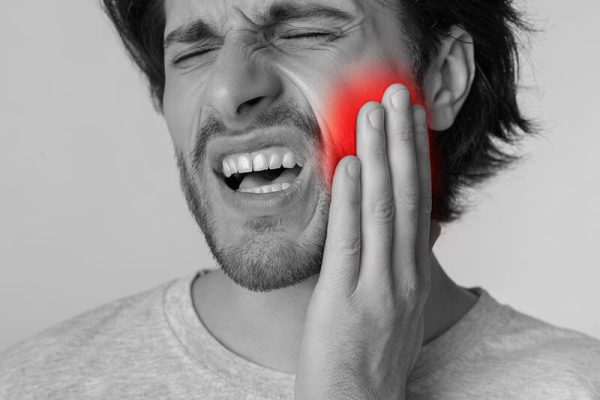Steps and Considerations To Be Aware of in a Dental Emergency
Experiencing a dental emergency can be a daunting and uncomfortable situation. Whether it’s a sudden toothache, a knocked-out tooth, or a broken tooth, knowing what steps to take can make a significant difference in managing the situation effectively.
Our emergency dentist in Wasilla wants patients to be aware of the steps to take in certain circumstances of dental emergencies. By being prepared and informed, you can navigate dental emergencies with confidence and ensure the best possible outcome for your oral well-being.

Actions to Take During a Dental Emergency
When a dental emergency strikes, it’s best to know what steps to take to minimize pain and prevent further damage. During a dental emergency, it’s crucial to take immediate action. Stay calm and assess the situation to determine the severity of the emergency, such as:
- Assess your pain
- Take note of any bleeding
- Contact your dentist
Handling Dental Trauma
Dental trauma refers to injuries that affect the teeth, gums, or mouth due to accidents, sports-related incidents, or other traumatic events. Providing proper first aid for dental injuries can make a significant difference in preserving the affected teeth and reducing potential complications.
If you’ve undergone dental trauma, do the following:
- Stay calm and assess the situation
- Try to re-implant the tooth if knocked-out
- Control bleeding and alleviate pain
- Preserve fractured tooth pieces
- Seek immediate dental care

Managing Dental Pain at Home
Dealing with dental pain can be distressing, especially when immediate dental care isn’t readily available. Managing dental pain at home is possible with over-the-counter pain relief options, natural remedies, and self-care techniques. It’s important to note that home remedies are temporary solutions, and seeking professional dental care is crucial for long-term resolution.
Some remedies to try at home include:
- Rinse with warm salt water
- Apply a cold compress
- Over-the-counter pain relievers
- Applying clove oil
- Avoid triggering foods and drinks
Emergency Dentistry and Dental Phobia
Dental phobia is a common fear or anxiety related to dental procedures and visits to the dentist. Unfortunately, dental emergencies can exacerbate dental phobia, making it challenging for individuals to seek prompt treatment. Overcoming dental phobia is essential for maintaining good oral health and seeking timely treatment during dental emergencies. This can be achieved by:
- Seek supportive dental professionals
- Communicate your fears and anxieties
- Consider sedation dentistry options
- Build a trusting relationship with your dentist
- Explore relaxation techniques
Handling a Dental Emergency Abroad
Traveling abroad can be an exciting experience, but encountering a dental emergency in a foreign country can be overwhelming. We’ll provide insights into emergency dentistry abroad, including finding dental services, understanding insurance coverage, and knowing the local emergency dental contact information.
It’s crucial to be prepared and informed before embarking on international travel:
- Research local dental services in advance
- Carry essential documents and insurance information
- Contact your dental provider at home
- Seek immediate dental care for severe pain or trauma
- Communicate clearly about your situation
Frequently Asked Questions
Numbing gels or oral analgesics may provide temporary relief for dental pain. However, it’s wise to follow the instructions and use them sparingly.
Yes, stress and anxiety can contribute to dental pain or exacerbate conditions such as teeth grinding or temporomandibular joint disorder (TMJ). Managing stress through relaxation techniques or seeking professional support can help alleviate dental pain associated with these factors.
If you have a severe toothache, schedule an appointment with your dentist as soon as possible. In the meantime, rinse your mouth with warm saltwater, use dental floss to remove any food debris, and avoid placing aspirin or other pain relievers directly on the tooth. Over-the-counter pain relievers may provide temporary relief, but dental evaluation and treatment are necessary to address the underlying cause of the toothache.
Here are some of the most common dental emergencies:
- Toothaches
- Knocked-out teeth
- Chipped or broken teeth
- Abscesses
- Lost dental fillings or crowns
- Soft tissue injuries
- Dental trauma from sports or accidents
No Matter the Location or Type of Emergency, We’re Here for You
Dental emergencies can happen unexpectedly, causing discomfort and anxiety. With the right knowledge and prompt actions, you can address these situations with confidence. By staying calm, evaluating the situation, and seeking professional dental care, you can effectively manage dental emergencies and minimize potential complications.
Contact our Wasilla dental office at (907) 373-2440 to schedule an appointment with Dr. Dawson. Prioritize your oral well-being and be proactive in addressing dental emergencies, ensuring a healthy and pain-free smile.
